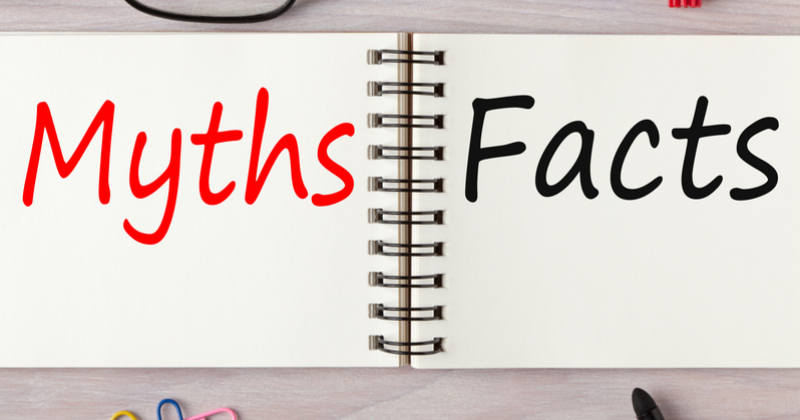
Estate planning documents provide peace of mind. But more importantly, wills and trusts are legally enforceable documents that ensure your final wishes will be carried out. Here are the facts on common estate planning myths.
updated October 28, 2019
1. I’m Too Young To Need a Will
If you have children under 18, have a job, are married or own property such as a car or home, you have assets and legal responsibilities. Even if you’re young, single and just starting your career you likely have an insurance policy at work and some assets you care about. You may have a mortgage, car loan and perhaps student loans. And if you have a child or are married, your children and spouse will require money for their education, housing and care. If you become incapacitated or die at a young age, you need to designate who will care for your minor children, and how your assets will be distributed.
2. It’s Cheaper to Make a DIY Will
A Do It Yourself will made at home on your computer could end up costing you time and money – and get you exactly what you didn’t want. For example, in Illinois, you must have two witnesses watch you sign your will. There are special rules that apply to the witnesses and their ability to inherit. If you’re considering using online DIY will software, there are many additional things to consider. Learn More: Are Online Wills Valid in Illinois
3. Only Rich People Need a Will
A will tells your loved ones how you want your assets distributed, including personal effects such as jewelry or memorabilia. Having an estate plan also gives your loved one’s peace of mind. Your will or trust can also tell your loved ones what funeral arrangements you want, how you want your debtors paid and other important decisions. You may also become temporarily incapacitated and need to appoint a legal guardian to act on your behalf for medical and financial decisions.
4. A Will Manages Distribution of My Assets
a will has limitations and control over are assets that are in your name only. Joint accounts and accounts with beneficiaries are not covered by your will.
5. A Will and a Living Will Are The Same Things
A will is something that goes into effect after your death, while a living will goes into effect while you are still alive. A living will lets you make your own health care, dependent and financial decisions if you become incapacitated, while a will does not make provisions for your medical needs or financial needs while you’re living.
6. Creating A Will Is Complicated
A will is very important and can be confusing if you’re not familiar with your local estate planning and probate laws. An experienced estate planning attorney can guide you through the information and documents you need to discuss and create your will.
7. I Already Made A Will
It’s great that you already made a will. But people change. Life changes. Circumstances change. Any time you have a major life event that changes your assets, your beneficiaries or any other provisions made in your will, you should review and update your will to reflect your changed circumstances. An out of date will that was never updated is more likely to have grounds to be challenged. A regular review of your estate plan with your attorney will demonstrate the clarity of your intentions.
8. I Don’t Have Many Assets
If you don’t own a home or have many assets, many people think their children can simply divide up their property after they die. According to a 2019 survey by TD Wealth, the biggest threat to estate planning in 2019 is family conflict. You can protect your family members from future arguments over your estate by talking to your family in an open and honest conversation about your plans and creating a will or trust with an estate planning lawyer who will help create a legal plan that follows your wishes.
9. I Don’t Need A Will Until My Spouse Dies
Illinois’ Joint Tenancy with Right of Survivorship means that co-owned property and assets automatically pass to the surviving spouse. Many married couples own most of their property this way, including homes, cars, bank accounts, and brokerage accounts. If you want to make a specific bequest, you need a will to do that. If both spouses are elderly when one spouse dies, the surviving spouse may have health or other issues that complicate executing a valid will.
10. I Have to Pay a Death Tax
A death tax is a federal estate tax paid to the government after someone dies. Death taxes are paid by the estate and not by the heirs. Federal tax law allows estates to exclude a certain amount in a tax year up to a certain threshold ($11.4 million in 2019) from being subject to the estate tax. The 100% marital deduction generally allows surviving spouses to inherit without paying estate tax, no matter the size of the estate. An estate planning attorney can examine your assets to determine if your estate is subject to federal estate taxes.
11. The Oldest Child is the Executor of the Parent’s Estate
You may appoint anyone who qualifies to be the executor of your estate, including your oldest child. The person who is legally responsible for managing the deceased’s estate is called the executor. The executor might be named in a will or trust document or could be appointed by a probate court if the person died intestate (without a will).
It’s important to understand the estate planning myths versus the facts. Illinois has very detailed provisions for how your assets will be distributed if you die without a will, or become incapacitated without choosing a guardian. Learn More: What Happens When You Die Without a Will in Illinois?
Estate planning is preparing for the future. Contact Estate & Probate Legal Group in Lombard Illinois today at 630-800-0112.